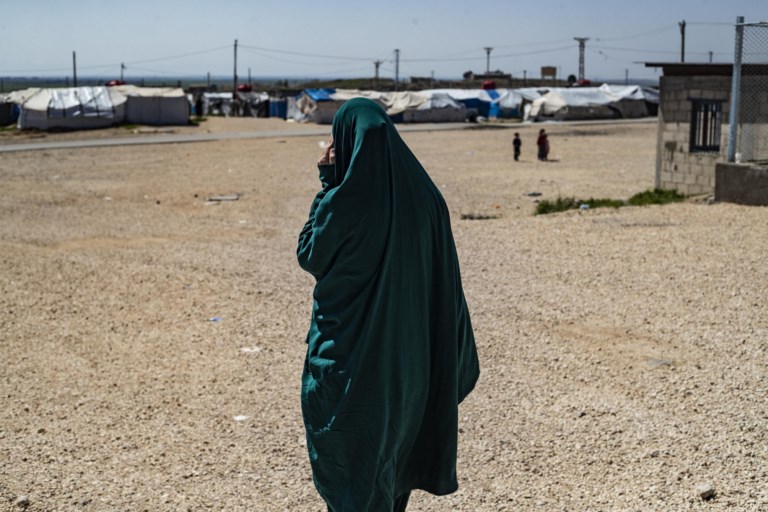This morning a military aircraft landed at Melsbroek airfield outside Brussels, carrying six women and ten children repatriated from a refugee camp in Syria.
The women, aged between 25 and 53 years, have been held in the Kurdish-run camp Roj in north-east Syria, after being captured by Kurdish forces. Four of the women are from Brussels and two from Flanders.
They left Belgium to follow their husbands to Syria to fight on the side of Islamic State (IS) against the forces of Syrian president Assad.
On their arrival in Belgium, the women will be taken directly to prison, where some still face prison sentences for membership of a terrorist organisation. Others are under a detention order.
The children, meanwhile, will be interviewed by a youth magistrate to decide what is to be done with them.
“I am happy for those children, who now hopefully can rebuild a life like other children, with education and medical care,” said Heidi De Pauw, CEO of Child Focus, who in the past urged the Belgian government to take the children back to Belgium with or without their mothers.
“Especially when you see how well the children who have come to Belgium before are doing.”
The repatriation is the result of a shift in policy by the Belgian government. In 2018 the government of Charles Michel decided that adults from the camps in Syria – in practice, almost entirely women – should not be repatriated. On the other hand, 20 or so children have been brought back to Belgium since then, not including today’s ten.
It was left to adults t make their own way to a friendly state like Turkey who could organise their return. That was the case for three Antwerp women and their six children in July last year.
In March of this year, prime minister Alexander De Croo told parliament the policy was to change, making it possible for mothers to be repatriated as the best way to make sure the children were brought to safety.
“We must not be blind to reality: the situation in the camps is deteriorating visibly and security is also getting worse. If you leave the children there, in a camp where IS rules, they become the terrorists of tomorrow," said De Croo at the time.
Six other women are left behind in the Roj camp. One refused to sign the necessary papers for repatriation. Two have no minor children and are not eligible. One does have minor children, but her mother, also in the camp does not, and the daughter refused to leave her mother behind. Finally one woman, who does have a child, is being left behind, possibly because she was previously stripped by a court of her Belgian nationality.

